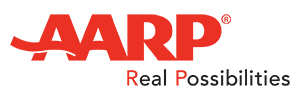
From fake COVID-19 cures and treatments, notices of false positives and other scams are an unfortunate result of people trying to make a quick buck from the coronavirus pandemic. But one prevalent scam is on the rise that can be harder to identify – “work-from-home scams.”
Identifying work-from-home scams can be tricky, especially as they often appear alongside legitimate opportunities on popular job-search websites. And if you’re a retiree looking to supplement your Social Security or a worker left reeling by a late-career layoff, it can be awfully tempting to follow those leads. Who wouldn’t like to earn big money stuffing envelopes or posting online ads from the comfort of your couch or get all the tools and training needed to start a lucrative home-based business?
Few of these offers ever lead to actual income. Instead, they are liable to leave you with a lighter bank account or even heavily in debt.
From 2015 through 2019, the Federal Trade Commission (FTC) received more than 58,000 consumer complaints about sham opportunities to work from home or launch a business. The median loss for victims is about $1,200, according to the Better Business Bureau’s BBB Scam Tracker, which says employment frauds pose the highest scam risk for military service members and veterans. Federal officials have raised alarms about such scams spiking amid the coronavirus shutdown, as millions of people who’ve lost jobs search for new opportunities.
Typical ploys invite you to get to work stuffing envelopes, processing billing forms for medical offices, filling out online surveys, doing typing or data entry, or assembling crafts. The common thread is that you’ll be asked to pay something upfront for supplies, certifications, coaching or client leads. In return you may get a load of useless information, or nothing at all, or a demand that you place more ads to recruit more people into the scheme.
More involved cons promise to set you up in an online business — again, for a price, which can rapidly escalate into the thousands of dollars as one paid “training program” leads to another. One such operation, a Malaysian company called My Online Business Education, agreed in February 2020 to pay more than $17 million to settle claims that it defrauded thousands of would-be entrepreneurs with costly business-coaching programs before being busted by the FTC.
There are genuine work-from-home jobs out there. The trick is knowing how to spot the real opportunities in a sea of empty — and costly — promises.
Warning Signs
- A job ad claims that no skills or experience are required.
- It offers high pay for little or no work.
- A company promises that a business opportunity is surefire and will pay off quickly and easily.
- You’re required to pay upfront for training, certifications, directories or materials.
For more do’s and don’ts when it comes to work from home scams, visit the AARP Fraud Watch Network site www.aarp.org/fraud You can sign up for free watchdog alerts, see a scam tracker map, and call the Fraud Watch Helpline 888-908-3360 if you think you have been victimized

